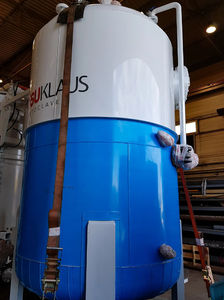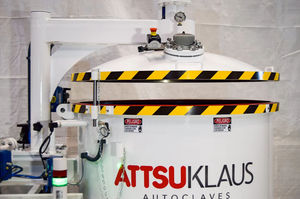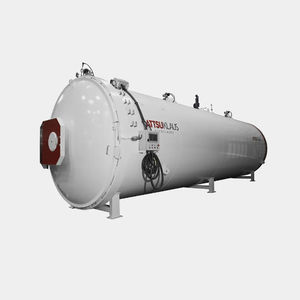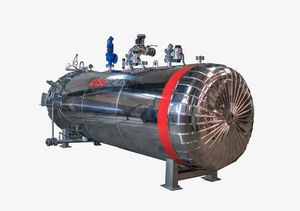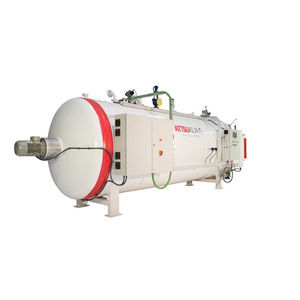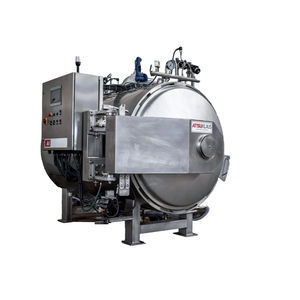
- Industrial machines and equipment
- Furnace and Heat Treatments
- Process autoclave
- ATTSU KLAUS (grupo ATTSU termica)
Process autoclave automaticglasshorizontal
Add to favorites
Compare this product
Characteristics
- Laboratory/process
- process
- Other characteristics
- automatic, horizontal, glass
- Maximum temperature
Max.: 250 °C
(482 °F)Min.: 0 °C
(32 °F)
Description
Glass and special crystal autoclaves
Glass autoclaves are used in the glass industry for thermoforming and laminating processes as well as for the manufacture of laminated and toughened glass.
In the laminated glass manufacturing process, layers of glass are sandwiched with sheets of interlaminar material, such as PVB (polyvinyl butyral), EVA (ethylene vinyl acetate) or SGP (structural polyvinyl butyral), and subjected to controlled heat and pressure in the autoclave for a specified time. This allows the layers to adhere to each other and form a single pane of glass that is stronger and safer.
On the other hand, in the tempering process, the glass is heated to high temperatures and then quickly cooled to increase its strength. The glass autoclave plays a crucial role in the controlled cooling of tempered glass, which helps improve its mechanical and thermal resistance.
Generally, heating is carried out by a battery of electrical resistances installed inside the autoclave. In the case of autoclaves for curing large glass, electrical heating can be replaced by thermal oil from a boil
Catalogs
No catalogs are available for this product.
See all of ATTSU KLAUS (grupo ATTSU termica)‘s catalogsOther ATTSU KLAUS (grupo ATTSU termica) products
INDUSTRIAL AUTOCLAVES
*Prices are pre-tax. They exclude delivery charges and customs duties and do not include additional charges for installation or activation options. Prices are indicative only and may vary by country, with changes to the cost of raw materials and exchange rates.


